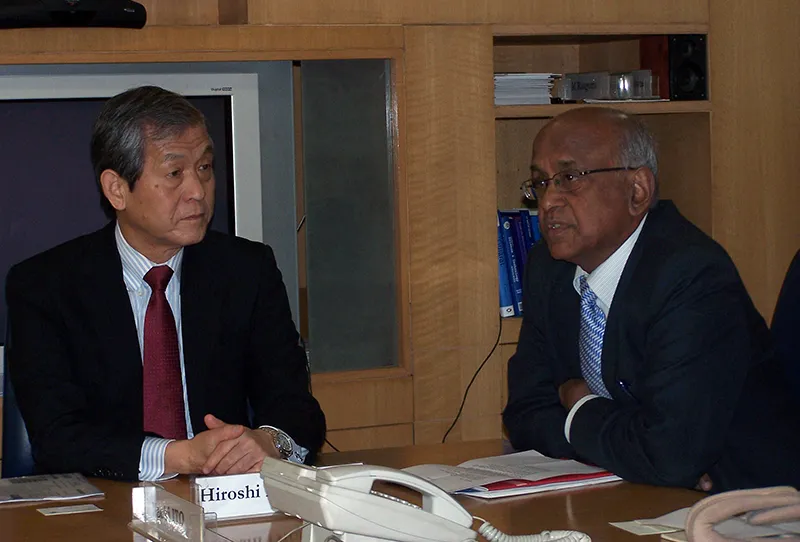-
CENTRES
Progammes & Centres
Location
Control of China through cooperation could be a more effective policy given the size and closed nature of China's society

The US, India and Japan along with other Asian countries should cooperate to induce China to become a “responsible power” and to cap its rapid military modernization, Prof. Iokibe Makoto, President, National Defence University, Japan said at an interactive session with research faculty at ORF campus on Thursday, 11 February, 2010.
Prof. Iokibe said that North Korean nuclear issue is a serious one but this could find some solution in next 15 years or so. The main issue is China’s rapid military modernization, he stressed.
The economic rise of the two Asian giants India and China was good, Prof. Iokibe pointed out. But he said that the problem lies in the rapid military modernization of China. He was of the view that China does not appear to be guided by any “grand strategy” but it seems to take advantage of the opportunities emerging out of its economic and military developments. Prof. Iokibe said that China’s economy is growing but the ratio of its defence expenditure was disproportionate to its economic growth.
He, however, said that containment is not always productive. Rather, he suggested that control of China through cooperation could be a more effective policy given the size and closed nature of China’s society.
Japan wants to maintain good relations with China, Prof. Iokibe said. He said the peace agreement of 2008 for joint development of gas field in the East China Sea was one such effort. He said that there has been, however, no progress in the implementation because of Beijing’s lack of interest.
Prof. Iokibe stressed the importance of Japan-US security alliance saying it is a stabilizing factor in the Asia Pacific. He further said that Japan could become a “floating power” in the absence of the Japan-US alliance, a scenario that holds more uncertainty. Referring to the speculation of the seemingly distancing between Japan and the US, Prof. Iokibe said that “strategic trust” takes a long time to mature but can be easily eroded.
On Japan’s amendment of Constitution particularly of the most controversial ones such as Article 9 which deals with renouncing war and maintenance of defence forces, Prof. Iokibe said the current government may keep the issue under wrap
Prof. Iokibe also spoke at length the nature and evolution of Japan’s defence posture since the Second World War and the debates and public opinion that have shaped the country’s security policies. He said that during the Cold War period, Japan had used the US power to counter the erstwhile Soviet Union, then seen as a threat. Japan’s security alliance with the US was an important factor for its economic growth and prosperity, he added. In the Post-Cold War period, Japan’s major security challenges came from North Korea’s nuclear crisis as also issues relating to abduction and spy-ships.
Describing his visit to India, Prof. Iokibe said it was particularly to encourage student exchange programmes between the National Defence Academy and National Defence University of India and Japan .
The report has been prepared by K Yhome, Associate Fellow, ORF
The views expressed above belong to the author(s). ORF research and analyses now available on Telegram! Click here to access our curated content — blogs, longforms and interviews.